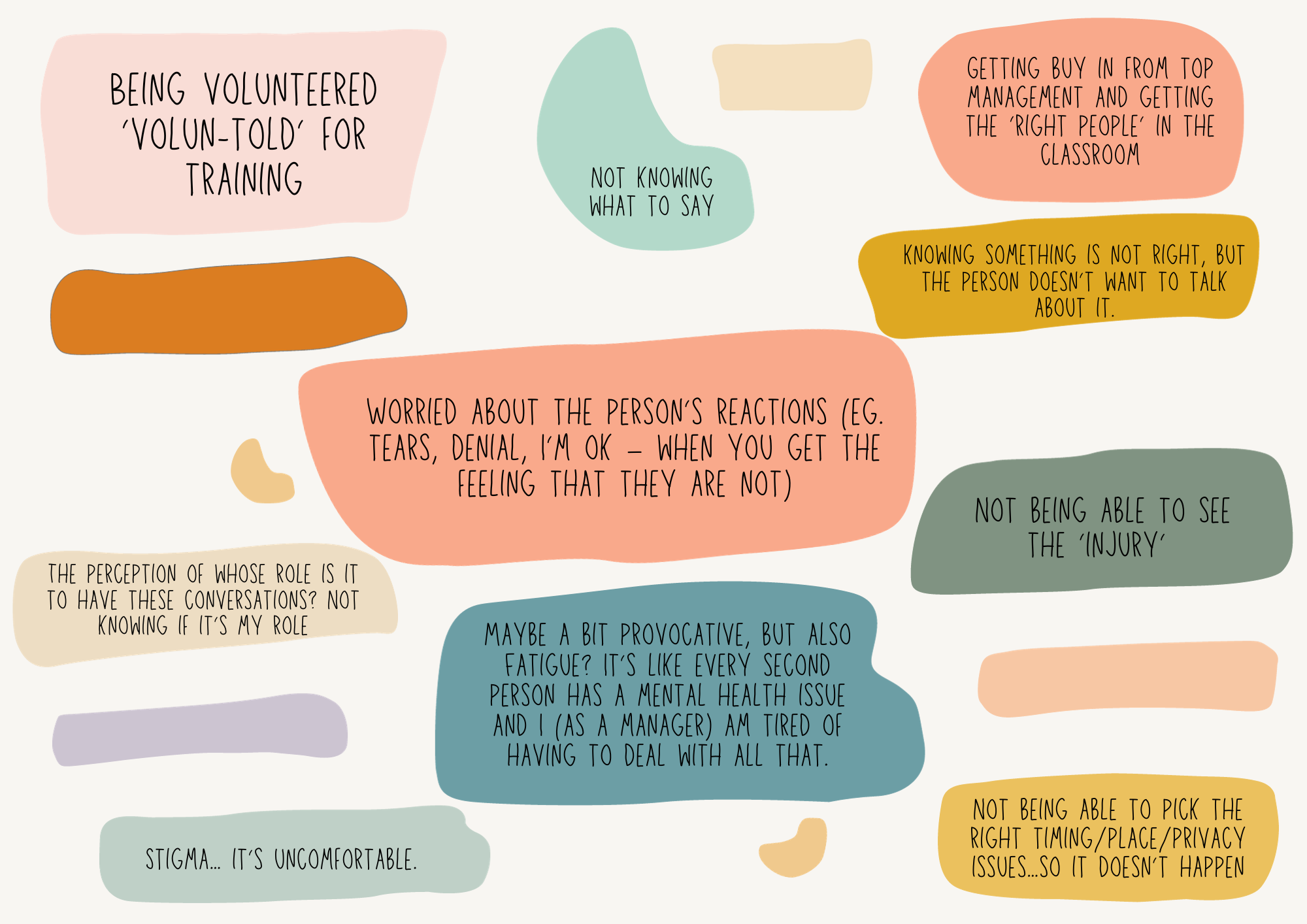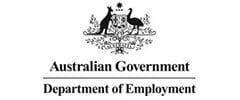Overcoming the barriers to mental health conversations
If you managed to take a holiday over the past few weeks, we hope you’ve had a refreshing break. In addition, we are pleased to be back after ‘spring break’ for our Coaching Café.
Tuesday 10th October marks World Mental Health Day 2023 in Australia.
The WHO states that World Mental Health Day is ‘an opportunity for people and communities to unite behind the theme ‘Mental health is a universal human right’ to improve knowledge, raise awareness and drive actions that promote and protect everyone’s mental health as a universal human right.’
Therefore, our Coaching Café this week has a focus on mental health conversations in the workplace. In particular, raising awareness around the barriers to mental health conversations. And importantly, how to overcome the barriers.
We called on Andrew ‘Figgy’ Figtree (former Group Captain for the Air Force) to share his experience. Figgy has extensive experience in Air Force command roles, along with being a Mental Health First Aid Trainer, Air Force coach and veteran’s affairs advocate. Importantly, to give us some ideas about how to break down barriers to mental health conversations.
Listen to the Coaching Cafe podcasts
Before we begin…
Before we dive into the main topic, it’s crucial to acknowledge that many individuals have direct experience with mental health challenges. This can be personally or through someone they know. We understand that discussing mental health can be confronting or distressing for some. Therefore, if you or someone you know requires support, please do not hesitate to reach out to relevant organisations or helplines listed at the bottom of this blog.
What are the barriers to mental health conversations?
It didn’t take us long to list a lot of the barriers that we hear to mental health conversations. From ‘it’s not my role’ to ‘I don’t know what to say’ and ‘what if they cry’. The barriers are real. And with Figgy’s help we address each one in the podcast. In addition, we discuss some of the main barriers below.
1. Stigma and normalisation:
One of the significant obstacles is the stigma associated with mental health. Educating ourselves and normalising conversations about mental well-being is the first step towards overcoming this barrier. Understanding that 1 in 5 individuals may experience a diagnosable mental illness within a year emphasises the need for normalising such discussions.
2. Not knowing what to say:
Many people struggle with not knowing what to say in a mental health conversation. Figgy suggests using open questions, showing empathy, and validating the other person’s feelings. It’s crucial to reassure them that you genuinely care about their well-being.
3. Privacy and timing:
Choosing the right place and time for a mental health conversation is essential. Private and confidential settings are ideal, ensuring the person feels safe and supported. Figgy also recommends going for a walk as a non-confrontational way to open up the dialogue.
4. “It’s not my role”:
Dismissing the responsibility to initiate mental health conversations as “not my role” is a common barrier. However, Figgy emphasizes that it is everyone’s responsibility to care for each other’s mental well-being. Just as you’d want someone to ask if you’re okay, extend the same compassion to others.
5. Not being able to see the ‘injury’:
So, at the time of writing, Natalie has a fractured elbow and is a sling. She comments on the difference when can see the injury – people will ask you how you did it, how are a going and empathise with the story of how it happened. But we can’t necessarily see that a person is struggling with their mental health. That’s why it’s important to check in with people; and Figgy suggests being specific around what you may have noticed, if you see signs and symptoms of mental health problems.
Finally self-care and debriefing:
Engaging in mental health conversations, especially challenging ones, can be emotionally draining. After such conversations, it’s important to practice self-care. Furthermore, don’t hesitate to share your experiences with a trusted friend or colleague to lighten the emotional load.
Overcoming the barriers to workplace mental health conversations requires a collective effort. By normalising the dialogue, offering support, and showing empathy, we can create a more compassionate and mentally healthy workplace. Remember, it’s everyone’s responsibility to care for each other’s mental well-being. Furthermore, a little discomfort is a small price to pay for potentially saving a life.
You can find out more about Mental Health First Aid Training here.
Where to get help?
If you or someone you know needs support, you might like click the link or telephone the contacts below:
- Lifeline on 13 11 14
- Beyond Blue on 1300 224 636
- Suicide Call Back Service 1300 659 467
- If a life is in danger call Triple Zero 000
FREE Coaching Cafe Webinar
Every week our team of experts present “Coaching Cafe” webinar with topics for Managers, Leaders, Business Owners, and everyone who wants to be a better workplace coach, leading their teams to higher productivity, better outcomes and a happier, healthier workplace.






































